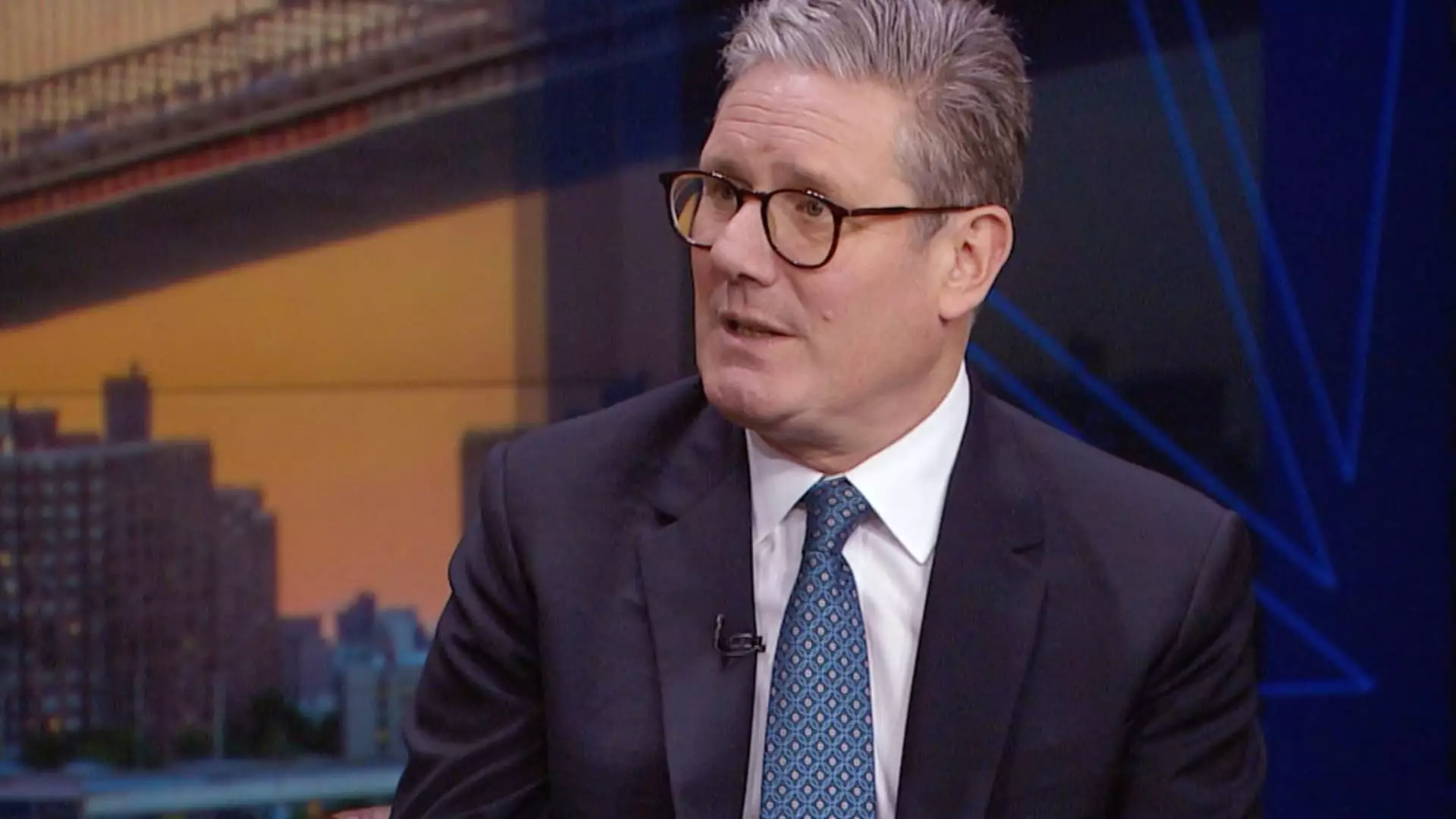The United Kingdom stands at a crossroads, with its economy wrestling against stagnation and a need for renewal. Under the leadership of Prime Minister Keir Starmer, the Labour government is aggressively seeking investment from American powerhouses in banking and technology. Starmer’s administration is driven by a vision that amalgamates support for both businesses and workers, exhibiting a dual allegiance that he argues is essential for national prosperity. This intention was clearly articulated in a recent exclusive interview with CNBC’s Andrew Ross Sorkin, where Starmer emphasized wealth creation as a fundamental priority for his government.
Starmer’s calls for investment arrive during a crucial time, with the impending unveiling of the government budget and an economy that demands revitalization. His initiative not only targets capital influx but also aims to shift the focus of growth beyond London—an effort to decentralize economic prosperity. Meetings with financial leaders like Bank of America’s CEO, as well as executives from other influential corporations such as BlackRock and Microsoft, signify a strategic outreach aimed at garnering their expertise and resources. A noteworthy development from these discussions includes Blackstone’s impressive commitment of $13 billion to develop a data center in the northeast of England, projected to create around 4,000 jobs and provide vital support for burgeoning sectors such as artificial intelligence.
This investment serves a dual purpose: bolstering the local economy while addressing the increasing demand for technological infrastructure. Starmer has underscored that fostering industries like renewable energy and life sciences forms a central priority of his agenda to stimulate job composition and economic diversity in areas historically overlooked in the post-industrial landscape of the UK.
Despite these ambitious plans, Labour faces significant challenges. A fiscal audit conducted soon after Starmer took office revealed critical funding shortfalls of approximately £22 billion ($29 billion). This alarming deficit has sparked concerns regarding the sustainability of the government’s financial strategies, particularly as the economy continues to grapple with post-pandemic realities. Critics, including former Conservative Finance Minister Jeremy Hunt, have expressed apprehensions regarding Labour’s fiscal policies, alleging that they paint a grim picture of the nation’s economic health.
Moreover, as Starmer navigates these political waters, he has encountered accusations concerning a perceived excessive pessimism regarding the UK economy. Critics highlight the Labour government’s plan to abolish the non-dom tax regime, arguing that it may stifle investment at a time when attracting capital is critical. Maintaining economic optimism while confronting real issues is a delicate balance that the government must strike if it is to foster an environment conducive to investment.
Internal Party Dynamics and Economic Policy Tensions
Internal discord, particularly within Labour regarding economic reforms, poses additional hurdles. A recent symbolic vote during the Labour Party’s Annual Conference saw a rejection of Starmer’s proposed cuts to the winter fuel allowance for pensioners—indicative of the tension between fiscal prudence and social welfare commitments. Starmer’s assertion that tough decisions must be made for the greater economic good may resonate with some, but it is likely to alienate parts of his support base.
Acknowledging the importance of the triple lock on pensions—a policy that guarantees annual increases in state pensions—Starmer argued that the government can support pensioners while simultaneously taking necessary austerity measures. However, the challenge remains in convincing stakeholders, both within and outside the party, that such trade-offs are essential for achieving long-term economic stability.
The Labour government’s ambitious strategy to attract investment from the United States marks a significant shift in the UK’s economic landscape. As Starmer and his administration pursue growth in critical industries, they must adeptly navigate the complexities of fiscal reality, party unity, and public sentiment. By fostering a pro-business environment while protecting worker interests, the government hopes to revitalize Britain’s economy, turning stagnation into a forward momentum that benefits all sectors of society. The outcome of these endeavors will not only determine the future of Starmer’s leadership but also the broader trajectory of the country as it seeks to redefine its economic identity in a post-Brexit world.



Leave a Reply